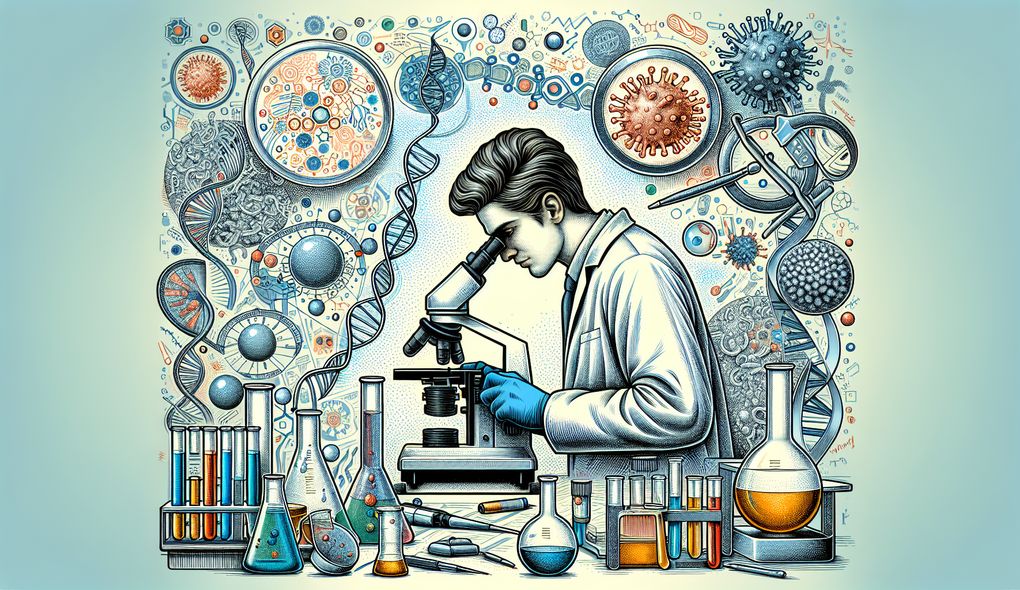Tell us about a time when you had to deal with unexpected obstacles or challenges during a research project. How did you overcome them?
INTERMEDIATE LEVEL

Sample answer to the question:
During a research project I worked on last year, we encountered unexpected obstacles when our laboratory equipment malfunctioned, causing delays in our data collection. To overcome this challenge, we quickly contacted the equipment manufacturer for troubleshooting guidance and realized that the issue was fixable with a replacement part. We managed to source the part locally and had it installed, minimizing the delay. Additionally, we shifted our focus to other aspects of the project that didn't rely on the equipment, such as data analysis and literature review. This allowed us to make progress while waiting for the equipment to be fully operational again.
Here is a more solid answer:
During a research project I worked on last year, our team faced unexpected obstacles when our laboratory equipment malfunctioned, which caused significant delays in data collection. To address this challenge, I immediately contacted the equipment manufacturer for troubleshooting guidance. After extensive troubleshooting, we identified the problem to be a faulty circuit board. I worked closely with the manufacturer to obtain a replacement part and coordinate its installation, minimizing the downtime. Meanwhile, I proactively reallocated resources and adjusted priorities to focus on other aspects of the project that didn't rely on the equipment. This included data analysis, literature review, and collaborating with team members on related experiments. By effectively managing these parallel tasks, we ensured progress and maintained project timelines. This experience highlighted the importance of critical thinking, problem-solving skills, and adaptability in navigating unforeseen challenges.
Why is this a more solid answer?
The solid answer expands on the basic answer by providing more specific details about the candidate's technical skills, critical thinking, and problem-solving abilities. It also demonstrates their strong organizational skills and ability to manage multiple projects by reallocating resources and adjusting priorities. The answer further showcases their adaptability to changing technologies and research priorities by flexibly shifting their focus to other project aspects. However, it could still be improved by highlighting the candidate's collaborative spirit, interpersonal skills, and commitment to ethical research and integrity.
An example of a exceptional answer:
During a research project I led, we encountered unexpected obstacles when our laboratory lost power due to a sudden blackout. This posed a significant challenge as we were in the midst of a time-sensitive experiment. As the project lead, I took immediate action by coordinating with the facilities team to ensure a backup power supply was deployed to the laboratory. This allowed us to resume our experimental procedures without further delay. Additionally, I leveraged my strong network within the research community to secure a temporary lab space where we could continue our work until power was restored. This required building collaborative relationships and negotiating access to the facilities. Despite the setback, I ensured efficient data collection by optimizing our experimental protocols and utilizing the available resources effectively. This experience not only tested my technical skills in molecular biology, biochemistry, and data analysis but also highlighted my ability to think on my feet, remain organized amidst chaos, and maintain a commitment to ethical scientific research and integrity.
Why is this an exceptional answer?
The exceptional answer builds upon the solid answer by providing an even more challenging scenario where the candidate faced unexpected obstacles during a research project. It demonstrates their ability to take immediate action, coordinate with different teams, and leverage their network to overcome the challenge. The answer also highlights the candidate's strong technical skills, critical thinking, problem-solving abilities, organizational skills, and commitment to ethical research. It showcases their ability to remain calm and organized amidst chaos and utilize available resources effectively. This answer effectively addresses all the evaluation areas mentioned in the job description.
How to prepare for this question:
- Familiarize yourself with common challenges encountered in research projects and think about how you have overcome similar obstacles in the past.
- Highlight specific instances where you demonstrated problem-solving abilities and adaptability in a research setting.
- Emphasize your organizational skills by discussing how you effectively managed resources and prioritized tasks during unexpected situations.
- Reflect on your experiences collaborating with others in research projects and how you navigated challenges as a team.
- Be prepared to discuss your commitment to ethical research practices and integrity, providing examples of how you upheld these principles in previous projects.
What are interviewers evaluating with this question?
- Technical skills in molecular biology, biochemistry, and data analysis.
- Critical thinking and problem-solving abilities.
- Strong organizational skills with attention to detail.
- Ability to manage multiple projects simultaneously.
- Adaptability to rapidly changing technologies and research priorities.
- Collaborative spirit and strong interpersonal skills.
- Commitment to ethical scientific research and integrity.

